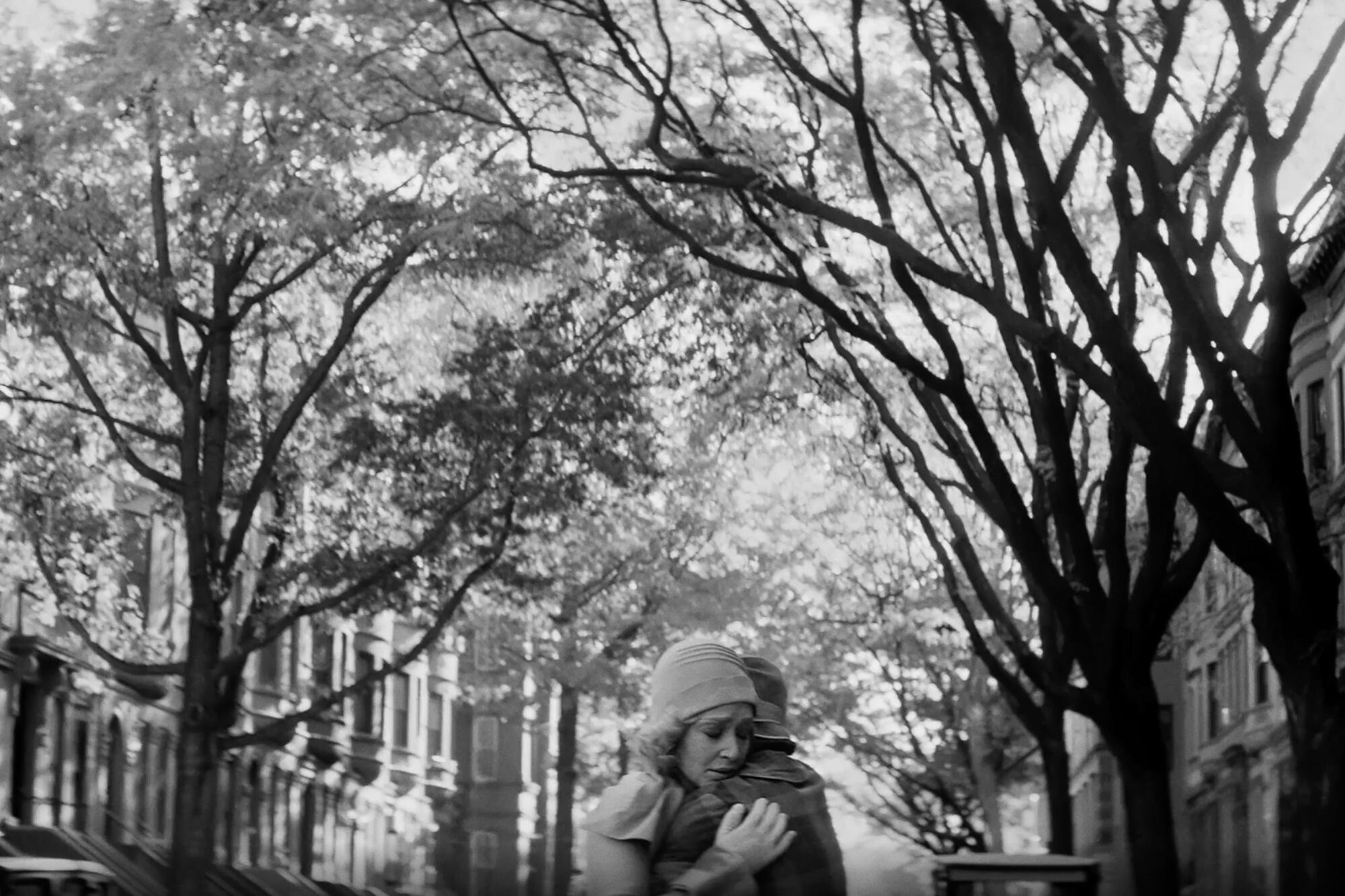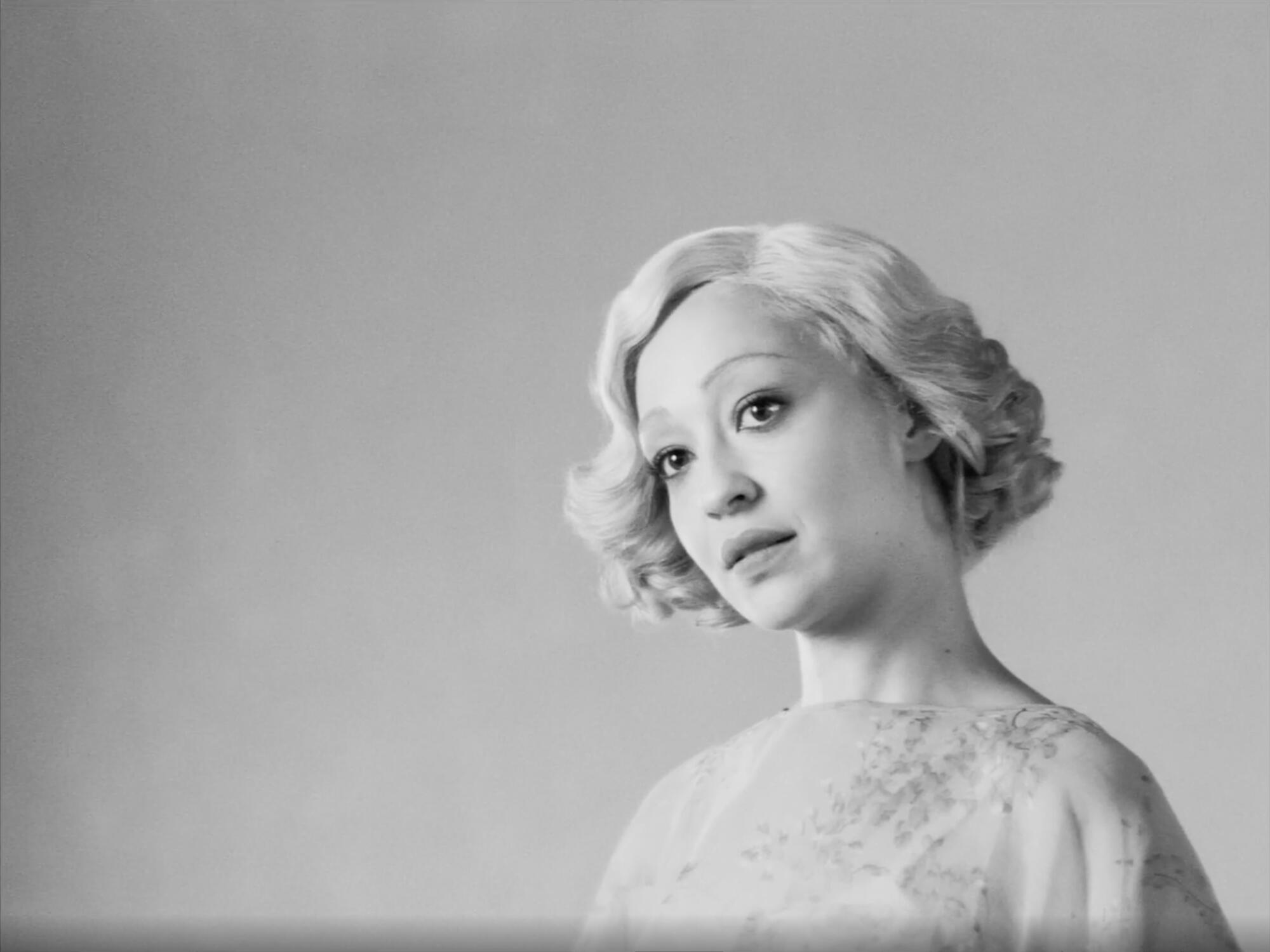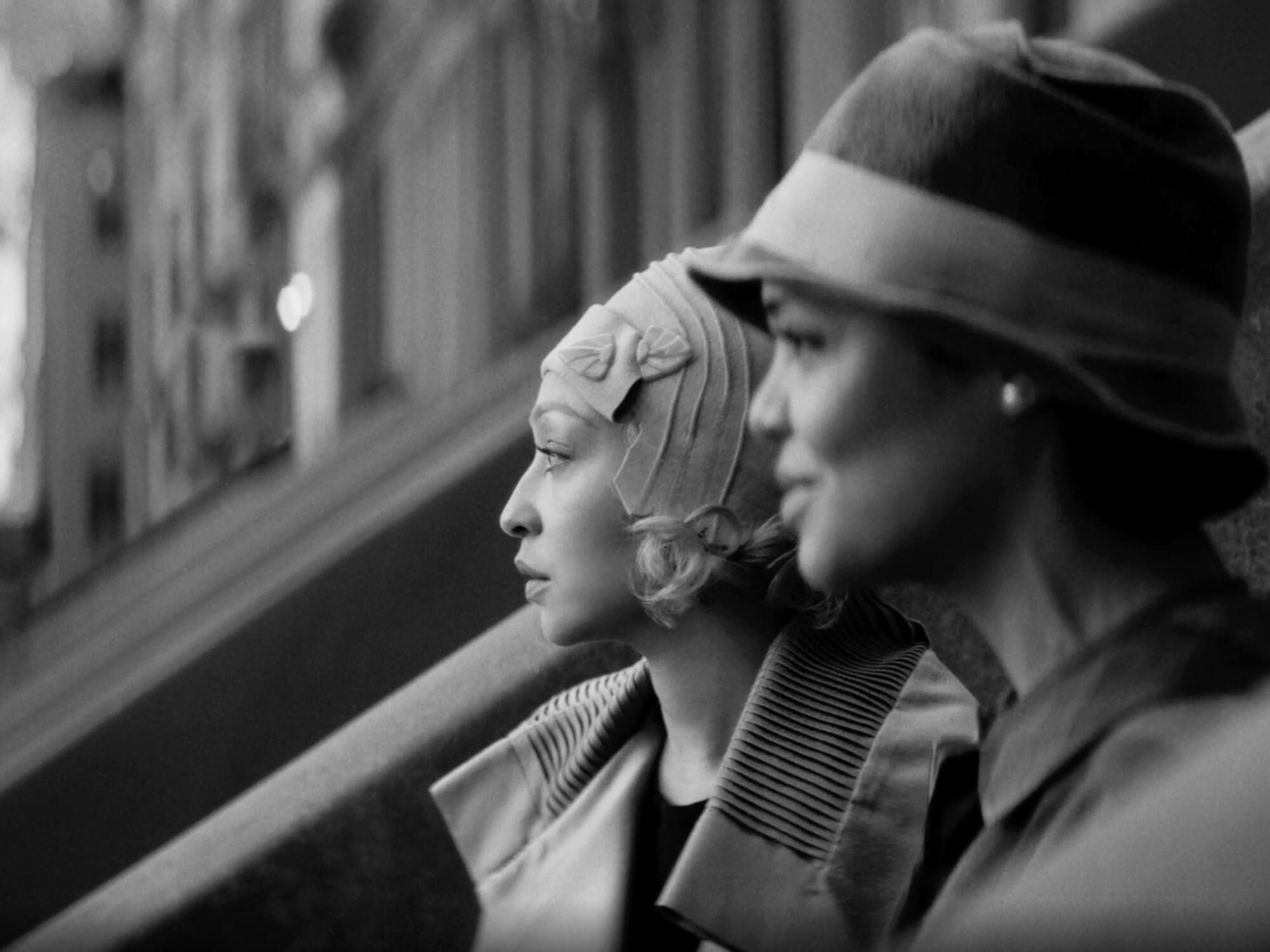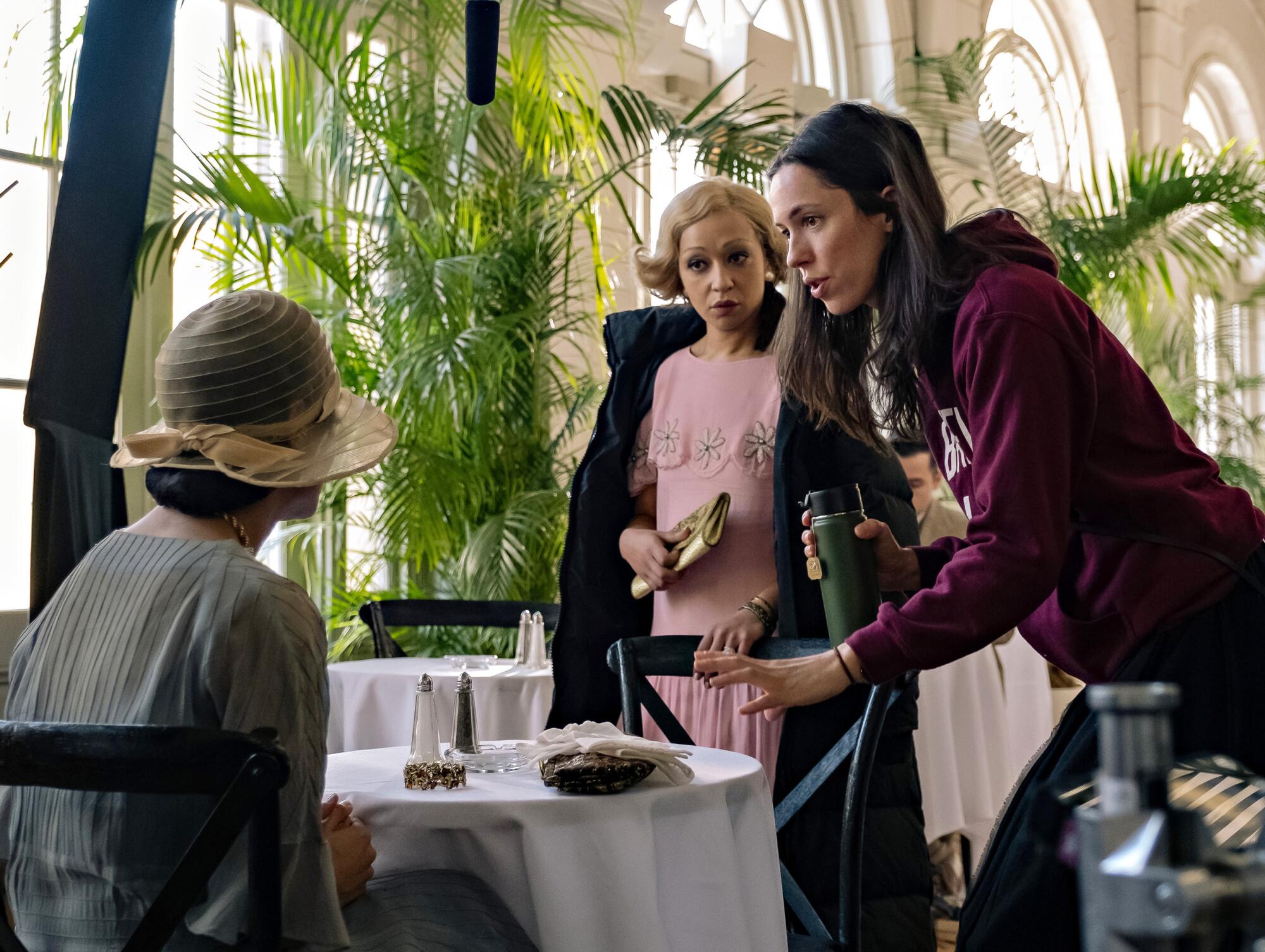
- Share via
When Rebecca Hall closed the cover on Nella Larsen’s 1929 novel “Passing,” she opened a new page in her career. Hall wrote a screenplay based on the book in 20 days and, 13 years later, made it her directorial debut.
Now on Netflix, “Passing” stars Tessa Thompson as Irene, a middle-class housewife from Harlem, and Ruth Negga as Clare, a childhood friend and bon vivant passing for white and married to an overt racist. Clare becomes a fixture in Irene’s life, spurring the latter to reassess her marriage, her station and the choices she’s made. An introspective rumination on gender, race and identity, the new movie contemplates issues that remain hot topics.

“This is an ongoing conversation in terms of how we perceive what we mean when we say race is a social construct,” Hall says. “This story really draws attention to the functionality of a lot of these categories, not just race but gender binary, sexuality, all of these things which don’t play into the story.”
While industry friends expressed admiration for her screenplay, most thought it would be a difficult film to finance. Potential producers suggested it be shot in color and not the black-and-white that Hall insisted on. Others wanted her to beef up the male roles in a story centered on two women. Finally, the project arrived at the door of producers Nina Yang Bongiovi and Forest Whitaker, who told Hall not to change a thing.
She approached Negga at an industry party in 2017 when the actor was promoting “Loving,” about the real-life interracial couple who were instrumental in overturning the U.S.’ racist marriage laws in 1967. Hall and Negga were casual acquaintances from the London theater scene that nurtured the careers of both.
“She said you have to let me play Clare,” Hall recalls. “I could tell that there was something that she could bring to it that was going to be exciting, because that’s true of actors when they say, ‘You’ve got to let me do this, I really want this.’”
Negga had no hesitation working with a first-time director on such delicate subject matter. “When we had a conversation I felt like a witness to this passion and this vision she had,” says Negga, who is in New York rehearsing “Macbeth” opposite Daniel Craig for a Broadway opening in the spring. “Coming from a similar background you understand all of the unsaids. She understands and is compassionate for the process. It’s her first foray into direction so what happens is there’s a unique trust that develops.”

Hall is the daughter of Royal Shakespeare Company co-founder and erstwhile National Theatre artistic director Peter Hall, who was considered London’s West End royalty. Her father directed her to several stage successes and soon Hollywood beckoned. Hall answered, breaking through as David Frost’s girlfriend in the Oscar-nominated film “Frost/Nixon” and in Woody Allen’s “Vicky Cristina Barcelona,” for which she earned a Golden Globe nomination.
So, in an era of racial reckoning and ongoing debates over who gets to tell what stories, how is a privileged white girl from London permitted to tell a racially charged story with a mainly Black cast in Harlem? Maybe because Hall’s mother, opera singer Maria Ewing, is the daughter of Norman I. Ewing, a Black man from Detroit who chose to pass as white, similar to Clare in the movie.
“You can hear people breathe a sigh of relief when Rebecca explained her history. So, in many ways we’ve avoided that topic because she has skin in the game,” says Negga. “But it speaks to the topic of who gets to tell which story. I think when you’ve been disenfranchised of a platform for your voice, that it’s crucial we hear authentic voices. But the idea that we automatically close out anyone who doesn’t have obvious personal connections to the story, I don’t think so. I think basically it’s about widening access to storytelling.”

While Hall never knew her grandfather, he cast a long shadow even after his death. The fact that there was African American blood in the family was an unspoken taboo, the cloaking of which takes its toll. “To me, my mother always looked Black and yet that wasn’t how she was necessarily identifying,” Hall remembers. “I got fed little pieces of information — maybe we’re Black, maybe we’re Native American. What I do know is she experienced some pretty extreme racism when she was a kid, whether it came from neighbors or even in her own family.”
Principal photography on “Passing” took 23 days in New York City, where it was shot on a minuscule budget. Early reaction from friends and acquaintances was supportive but tempered by nervous hesitation. Hall was told it might be too niche, too art house to sell. Netflix acquired the film in February for roughly $16 million following a buzzy premiere at Sundance, where it was part of the U.S. dramatic competition.
“Suddenly, it became incredibly forceful and potent and things I always had faith it had the potential to be, which is mainstream and commercial,” Hall says of a story she stuck with for more than a decade, despite doubters. “There has been, up until this moment, a real hesitancy to believe that the emotional lives of two women of color could contain universal themes.”
More to Read
From the Oscars to the Emmys.
Get the Envelope newsletter for exclusive awards season coverage, behind-the-scenes stories from the Envelope podcast and columnist Glenn Whipp’s must-read analysis.
You may occasionally receive promotional content from the Los Angeles Times.










